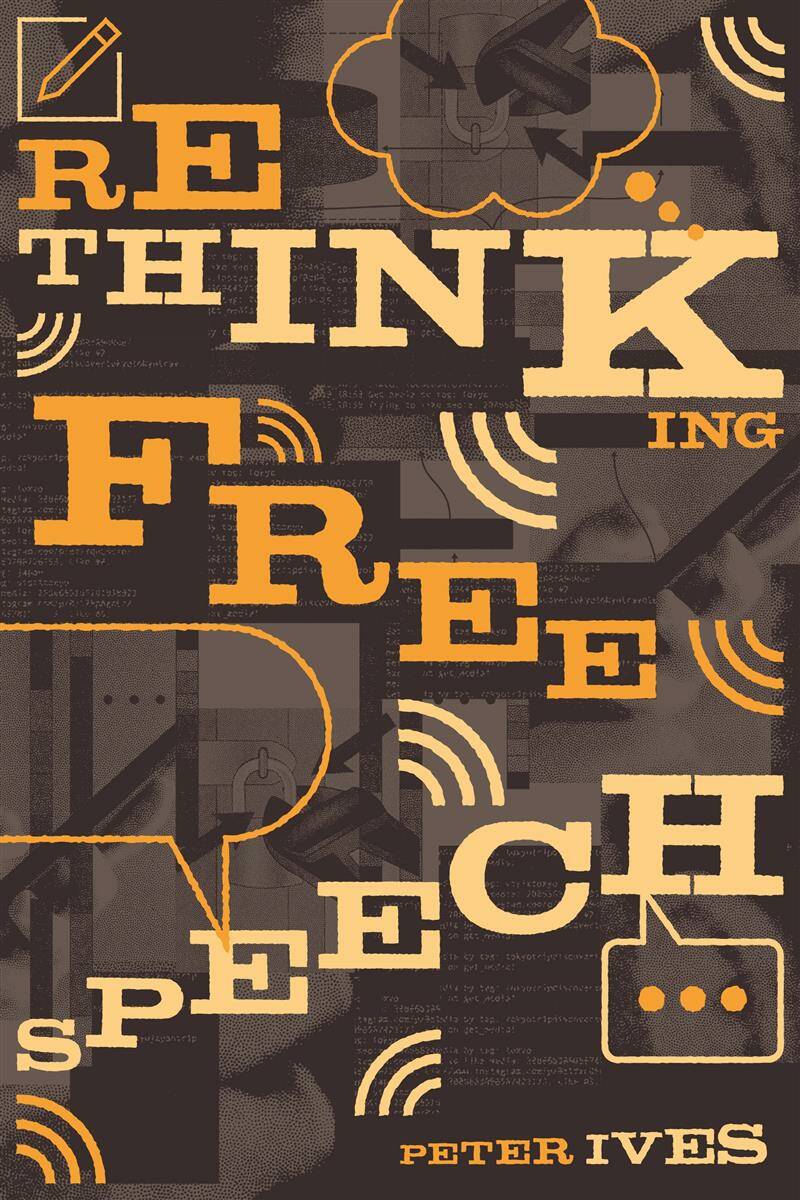Speaking their minds
Notions of free speech across the political spectrum unpacked in concise, careful volume
Advertisement
Read this article for free:
or
Already have an account? Log in here »
To continue reading, please subscribe:
Monthly Digital Subscription
$1 per week for 24 weeks*
- Enjoy unlimited reading on winnipegfreepress.com
- Read the E-Edition, our digital replica newspaper
- Access News Break, our award-winning app
- Play interactive puzzles
*Billed as $4.00 plus GST every four weeks. After 24 weeks, price increases to the regular rate of $19.00 plus GST every four weeks. Offer available to new and qualified returning subscribers only. Cancel any time.
Monthly Digital Subscription
$4.75/week*
- Enjoy unlimited reading on winnipegfreepress.com
- Read the E-Edition, our digital replica newspaper
- Access News Break, our award-winning app
- Play interactive puzzles
*Billed as $19 plus GST every four weeks. Cancel any time.
To continue reading, please subscribe:
Add Winnipeg Free Press access to your Brandon Sun subscription for only
$1 for the first 4 weeks*
*$1 will be added to your next bill. After your 4 weeks access is complete your rate will increase by $0.00 a X percent off the regular rate.
Read unlimited articles for free today:
or
Already have an account? Log in here »
Hey there, time traveller!
This article was published 01/02/2025 (245 days ago), so information in it may no longer be current.
“You’re guaranteed that the First Amendment is going to prevail,” said Canadian human rights attorney Jameel Jaffer in 2019 on the future of free speech cases in the U.S.
Justice Brett Kavanaugh had just taken his seat on the U.S. Supreme Court, reasserting the court’s Republican-appointed faction with the majority that conservative activists have worked for decades to preserve.
“But it’s one particular vision of the First Amendment. And sometimes a triumph for the First Amendment won’t necessarily entail a triumph for the values that some of us want (it) to serve,” added Jaffer.

Supplied photo
Peter Ives
Perhaps it seems immaterial (to use lawyerly jargon) to recall this quote by way of introducing University of Winnipeg professor Peter Ives’ valuable new work Rethinking Free Speech. After all, his book seems partially borne of a frustration with Canadians’ tendency to ape a specifically American tradition of free speech when they want their voices to carry louder. Facebook removed your comment? Blame Justin Trudeau and call on the First Amendment!
But like Jaffer, Ives reminds us that free speech is hardly a straightforward or neutral matter, attracting a rich mess of competing interpretations, justifications and applications both in law and public life.
Over his short, sometimes technical but clearly worded text, Ives helps the general reader, student and scholar parse the difference between free speech as a legal matter and “negative” right against government interference versus free speech as a “positive” freedom — a culture of openness and inclusivity towards which public discourse should aspire.
He also explores the knotty relationship in both the American and Canadian context between the law and social media, whose corporate captains sometimes seem bent on quashing free speech as a matter of fiduciary responsibility, as well as the difference between free speech and academic freedom which, while requiring a high degree of independence from outside meddlers, nevertheless has competency and truth as its objective rather than an “anything-goes” freedom.
Against a backdrop of almost religious passion surrounding free speech today — a cause for which people keep volunteering to “defend to the death” without telling us a whole lot about the ineffable thing they’re crusading for — these short excursions are, for the most part, shots of calm rigour.
This is not to say that Ives’ book, while poised to serve as a manual that could be assigned to students, is itself politically neutral. Ives’ concluding remarks defending pro-Palestinian speech on campus, and his nods to Indigenous and non-Eurocentric conceptions of free speech, signal to right-wing readers that he’s probably not a member of their clan.
He also seems to relish observing certain hypocrisies on the political right when it comes to free speech. When conservatives and libertarians who support laissez-faire attitudes also demand untrammelled free speech for the individual in all areas of public life, from their professional to their social media presence, they are effectively asking to empower the state and unions to take action against private businesses, an irony Ives politely highlights.
But Ives’ politics, with which this reviewer doesn’t always side, is not necessarily a defect of his work.

Rethinking Free Speech
Honest partisanship can contrast refreshingly with those who are perhaps overly hopeful that free speech can remain a neutral set of principles. Those voices, typically drawing on liberal traditions, tend to believe such neutrality is necessary to ensuring a fair playing field in a public arena increasingly given to polarizations and power politics.
The rise of left-wing and right-wing populism is imagined by such liberals as a kind of democratic excess that could be corrected, if only we could all fully submit to the uncontroversial rules of the game — rules relating to free speech and other basic rights and norms reflected not only in our constitutions, but liberal culture generally.
Then, so the story goes, we could get on arguing with one another peacefully without the risk of demogoguery or seeking to muzzle or “cancel” each other at the first sign of a serious difference of principle.
There’s something to this view, but it oversimplifies by overlooking the fact that liberalism, in law and politics, and among intellectual “elites” as much as ordinary people, is itself an internally polarized tradition.
Liberalism has its own fiery family squabbles between social-welfarist types and Freedom Convoy, “hands-off” types much more critical of state interventions. Ives is seemingly more or less in the former camp, and perhaps further to the left still.
These squabbles between progressives and conservatives happen in Canada and especially the U.S., with the latter seeing themselves as loyal to a more or less “classically liberal” or laissez-faire reading of their constitutions.
Jaffer’s remarks and Ives’ book remind us of this tension. There’s no one comprehensive vision of either free speech or basic rights whose truth is “self-evident” to all reasonable people, let alone all liberals.
With this in mind, it’s not enough to simply say that a healthy democracy requires a strong liberal culture of free speech — though it does — because how one conceptualizes free speech will depend on what kind of liberalism one has in mind.
JUSTIN TANG / THE CANADIAN PRESS FILES
In this 2022 photo, a counter-protester holds a sign promoting vaccines as others wave flags during a rally against COVID-19 restrictions in Ottawa. Free speech, and perceived restrictions of free speech, permeated pandemic discourse.
Ives also seems to necessarily recognize that the legal and technological structures shaping speech and communication aren’t neutral or necessary and that therefore, he writes, “in democratic societies, ‘we the people’ must determine what those structures are.”
Free speech means debating free speech, in a democratic spirit, and not taking for granted all its meanings and applications.
Ives’ carefully argued, respectfully partisan book is a vital contribution to that debate in Canada.
Conrad Sweatman is a Free Press arts and life reporter.

Conrad Sweatman is an arts reporter and feature writer. Before joining the Free Press full-time in 2024, he worked in the U.K. and Canadian cultural sectors, freelanced for outlets including The Walrus, VICE and Prairie Fire. Read more about Conrad.
Our newsroom depends on a growing audience of readers to power our journalism. If you are not a paid reader, please consider becoming a subscriber.
Our newsroom depends on its audience of readers to power our journalism. Thank you for your support.

